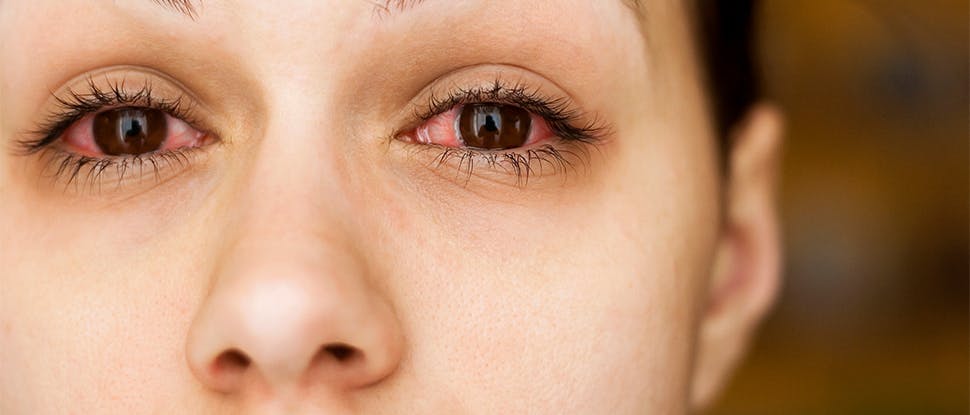Allergies: Symptoms and signs

Recognising allergies
Allergies can be managed effectively, so it helps to know how to identify this common condition.

Symptoms of allergies
Allergic rhinitis (AR) is defined as an IgE antibody‐mediated, inflammatory disease characterised by one or more of the following symptoms: nasal congestion, rhinorrhoea (runny nose), and sneezing and itching.1
In addition to these more obvious symptoms, there are a few other surprising symptoms that may be due to allergies, namely:2-4
- Chronic fatigue
- Asthma
- Upper respiratory infection
- Bronchitis
- Sinus infection
- Depression
- Sleeping problems
- Difficulty concentrating
- Lack of exercise endurance
Many patients will “suffer in silence” without talking about their symptoms. They may be purposefully diminishing their allergy symptoms and the impact they have on their quality of life for a variety of reasons:2
- They believe allergies aren’t that serious or are not a “real condition”, but more of a nuisance.4
- They may not know that while allergies may seem benign, they can still significantly impact their quality of life.2
They may be unaware that untreated allergies can increase the risk for more serious diseases, such as anaphylaxis, asthma, sinusitis, altered mood, and cognitive impairment.2,3

Seasonal allergic rhinitis (SAR) vs perennial allergic rhinitis (PAR)
Allergic rhinitis (AR) can be either seasonal or perennial (i.e. year‐round) in duration.5
SAR and PAR can be distinguished based on the allergens that trigger symptoms, by how long the symptoms last, and by what time of year the symptoms occur at.5
- SAR patients react to outdoor allergens like fungal spores and pollens, which fluctuate throughout the year.
- PAR patients have continuous or intermittent symptoms; they are affected by allergens such as dust mites, house dust, animal dander, and mould.
There is evidence that PAR patients will require allergy medications throughout the year, while SAR patients will require allergy medications predominantly around pollen allergy seasons: April, May, and June for the spring allergy season and August, September, and October for the autumn allergy season.5
Understanding allergies

Piriton Allergy 4 mg tablets (chlorphenamine maleate)
Find out more about Piriton. (For Pharmacist use only)

Flixonase Allergy Relief (fluticasone propionate)
Explore Flixonase Allergy Relief Spray.
Patient care resources
Access a leaflet for your patients, which can help them understand the causes of allergies and how best to treat them.

